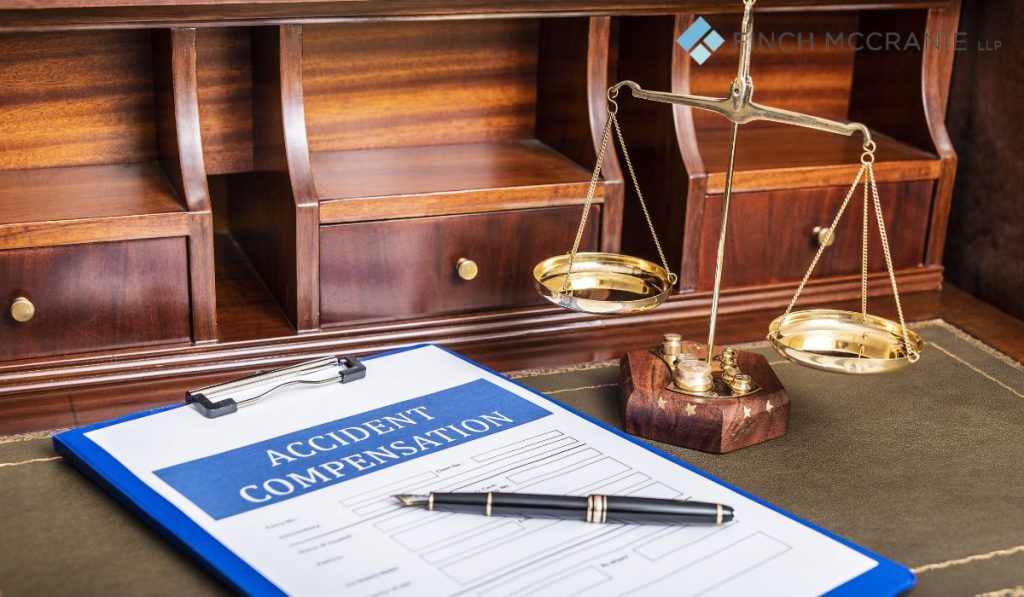Medical malpractice is a grave concern in the healthcare industry, affecting countless individuals each year.
Understanding medical malpractice settlements is crucial for anyone who has been a victim of substandard medical care.
In this comprehensive guide, we will delve into the intricate world of medical malpractice settlements, helping you navigate the legal and financial aspects associated with such cases.
What Is Medical Malpractice?
Medical malpractice occurs when a healthcare provider, such as a doctor, nurse, or hospital, fails to provide the standard of care expected in their profession, resulting in harm to the patient.
To shed light on this topic, we’ll break down the key aspects of medical malpractice settlements:
Exploring Medical Malpractice Settlements
Recognizing Medical Negligence
In a medical malpractice case, the first step is establishing that a healthcare provider was negligent.
This involves proving that the standard of care was breached.

The Role of Expert Testimony
Expert witnesses often play a crucial role in proving medical negligence.
These professionals provide their insights on what the standard of care should have been and how it was violated.
The Importance of Documentation
Accurate and thorough medical records are essential for building a strong case.
We’ll discuss how proper documentation can significantly impact the outcome of a settlement.
Calculating Damages
Compensation in a medical malpractice settlement includes economic and non-economic damages.
We’ll explore how these damages are calculated and the factors that influence the final settlement amount.
The Legal Process
Filing a Lawsuit
When a patient believes they have a valid medical malpractice claim, the process typically begins with filing a lawsuit against the responsible party or parties.
The Discovery Phase
During the discovery phase, both sides gather evidence, exchange information, and conduct depositions.
This phase can be lengthy and complex.
Negotiating Settlements
Many medical malpractice cases are resolved through negotiations rather than going to trial.
We’ll explain how settlements are reached and what factors can affect the outcome.
Going to Trial
Preparing for Trial
In cases where a settlement cannot be reached, the matter goes to trial.
We’ll discuss what to expect during this stage of the legal process.
Presenting the Case
The trial involves presenting evidence, examining witnesses, and making legal arguments.
We’ll provide an overview of the trial proceedings.
The Verdict
After all evidence has been presented, the jury deliberates and reaches a verdict.
We’ll explain the possible outcomes and their implications.
Conclusion
Medical malpractice settlements are complex legal processes that require a deep understanding of both medical and legal matters.
If you believe you have been a victim of medical malpractice, it’s essential to seek legal counsel and explore your options.
By following the steps outlined in this guide, you can better navigate the challenges associated with medical malpractice cases.

FAQs
What is the average duration of a medical malpractice settlement process?
The duration varies but can take anywhere from several months to several years, depending on the complexity of the case.
Are all medical malpractice cases resolved through settlements?
No, some cases go to trial when parties cannot agree on a settlement.
What types of damages can be recovered in a medical malpractice settlement?
Patients can recover economic damages (medical bills, lost wages) and non-economic damages (pain and suffering).
How do I find the right attorney for my medical malpractice case?
Look for attorneys with experience in medical malpractice cases and a successful track record.
Can I file a medical malpractice claim if I signed a consent form before treatment?
Signing a consent form does not absolve healthcare providers of negligence, and you may still have a valid claim.
Can I file a medical malpractice claim on behalf of a deceased family member?
Yes, if you are the legal representative of the deceased person’s estate, you can file a wrongful death claim on their behalf.
Is there a statute of limitations for filing a medical malpractice lawsuit?
Yes, there is a statute of limitations that varies by state. It’s crucial to consult with an attorney promptly, as waiting too long can bar you from pursuing a claim.
How much does it cost to hire a medical malpractice attorney?
Many medical malpractice attorneys work on a contingency fee basis, meaning they only get paid if you win your case. Consult with potential attorneys to understand their fee structure.
What are the key pieces of evidence I should gather for a medical malpractice claim?
Essential evidence includes medical records, photographs, witness statements, and any communication with healthcare providers regarding the incident.
Are there alternatives to going to court for a medical malpractice settlement?
Yes, mediation and arbitration are alternative dispute resolution methods that can be used to reach a settlement without going to court. These methods can save time and money compared to litigation.
 Trial Attorney Blog
Trial Attorney Blog

